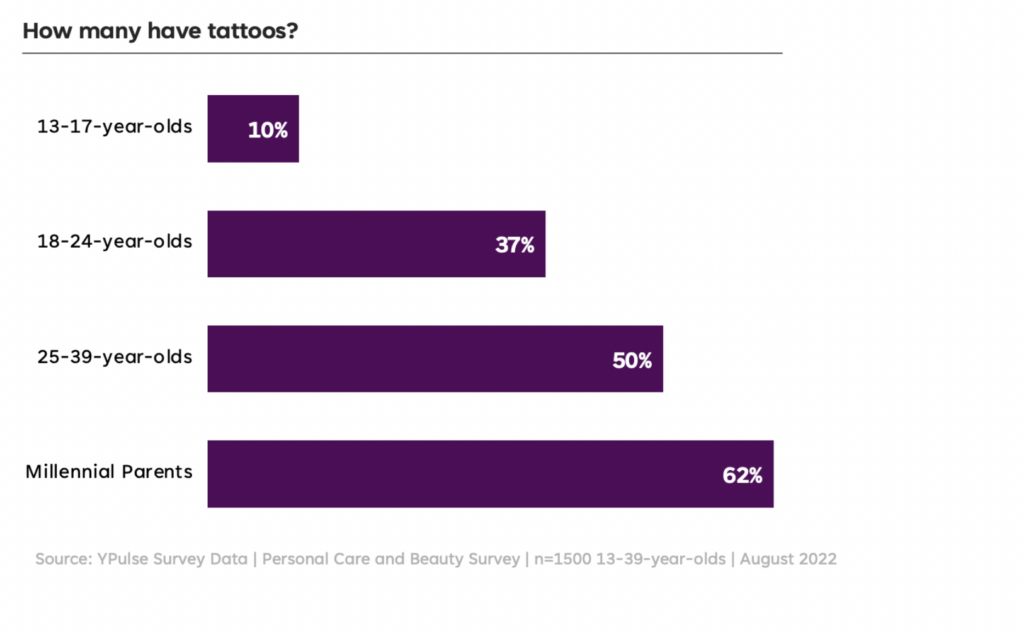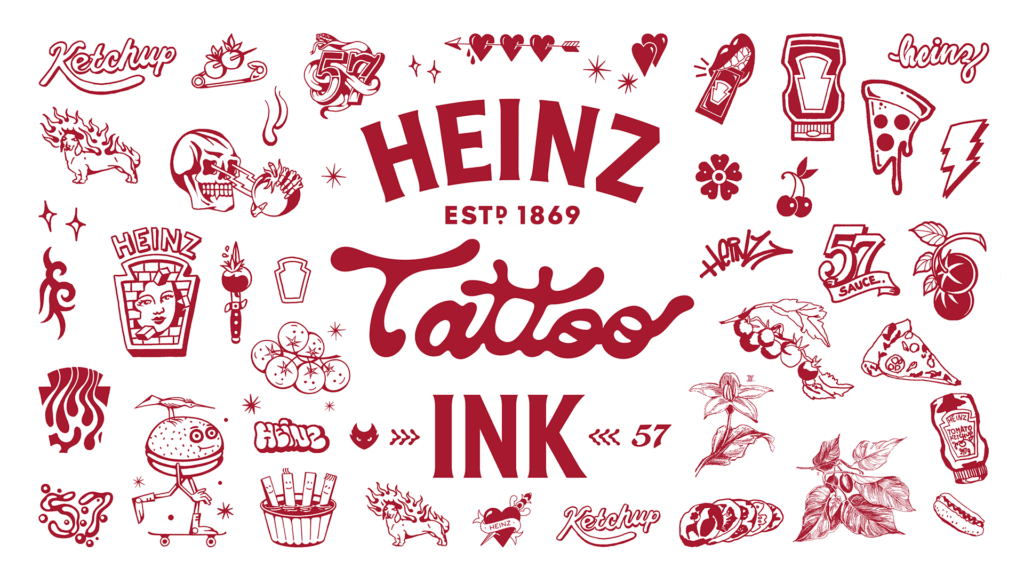With 62 percent of Millennial parents and nearly 40 percent of older Gen Zs sporting tattoos, according to a recent YPulse survey, Heinz is making a multi-generational play for relevance with its new tattoo ink.
Fill A Need, Solve A Problem
For many marketers, explaining how their brand fills a need or solves a problem is their first task— it’s an art that makes advertising complicated because audiences have to believe brand messaging is true. There’s another approach that often runs through organic buzz—the earned media value that accrues not just likes but genuine interest among audiences unfamiliar with a brand and its message. One way brand marketers can leverage earned media value is to take the branding maxim of filling a need and solving a problem into the wild, and becoming relevant to new audiences in an immediate, tangible way.
Recent EU regulations banning certain colors of tattoo ink have caused American tattoo artists to look for alternatives to the brightly colored inks should the US follow the EU.
If it materializes in the US, that potential ban could impact the millions of inked Millennials and Gen Z teens who are getting tattoos with increasing frequency. According to YPulse data, in 2019, just 21 percent of young people reported that they had tattoos. In 2022, that overall number rose to 40 percent. Recent YPulse shows that even Gen Alpha are getting tattoos—despite most states banning the practice on those under 18.

Heinz Goes Back To Basics—And Gets Extra Buzz
Heinz is already doing well with Gen Z. According to the Ad Age August 2022 Quarterly Brand Tracker, Gen Z listed Heinz as its 18th among the top brands showing brand equity growth. Part of this, say some analysts, is Gen Z’s penchant for purchasing nostalgia products, including foods that remind them of those swell preschool days. That’s a good thing for Heinz as there are 2.5 billion Gen Z consumers globally, representing the largest demographic group.
As chemists and tattoo ink companies scramble to prepare for more potential ink bans and the popularity of Heinz-themed tattoos (exemplified by Ed Sheeran) rises, Heinz solving a problem for one of its core audiences starts to make sense from a branding perspective.

Heinz worked with Brazilian creative agency SOKO and tattoo ink manufacturer Electric Ink, to develop a product that it says is safe, based on its proprietary official Pantone color.
Heinz worked with five renowned Brazilian tattoo artists to create 57 original Heinz tattoo stencils to interpret the brand’s trademark, “57 Varieties.”
Tattoo artist Helena Obersteiner stated, “I loved receiving this invitation! I love to draw and really admire brand communication.” Heinz will launch multiple pop-up promotions across Brazil to drive awareness in tandem with social media activations.
“A quick search of photos and hashtags on social media makes it obvious that Heinz fans love getting tattoos with our brand and products,” said Heinz Brazil brand leader Thiago Stelle in an interview. “Clearly, we had to do something extraordinary for them and, as a result, bring a new alternative to address the issue of harmful pigment ingredients.”
View the campaign in Portuguese and English.

